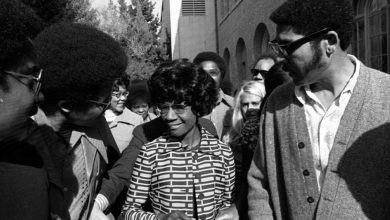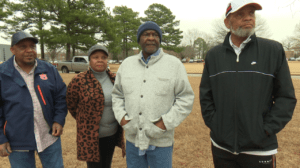Richmond Admirals Capture Titles at ‘Ultimate’ World Series in Reno

By Richard Johnson
And Post Staff
I had the privilege to have a sit-down interview with Alameda County District Attorney Pamela Price on July 16. Accompanying me were Post News Group publisher Dr. Paul Cobb and owner Gay Plair Cobb; Jonathan ‘Fitness’ Jones from African American Sports Entertainment Group (AASEG), and Dr. Maritony Yavot from Life Impact for Humanity (LIFH).
As columnist and founder of Formerly Incarcerated Giving Back (FIGB), I am grateful for the opportunity to interview Madam D.A. Price. My intention was not to dwell on negative opinions or preconceived notions. Instead, I approached the conversation with objectivity, seeking the truth and focusing on solutions, objectives, and the law.
I was aware of various news outlets that held preconceived ideas and outright biases. Being a formerly incarcerated person, trust was a significant factor in our discussion. Rather than assigning blame or harboring animosity, I wanted to ask questions and seek understanding.
I posed several questions to Price that were specifically related to her role as district attorney and what she can do to address problems within her jurisdiction. It was important for me to differentiate her responsibilities from those of the county’s various mayors, police chiefs, supervisors, and members of city councils. I understood that she holds a specific position with specific tasks.
My first question to her was about her plans, services, and resources for assisting the formerly incarcerated in finding stable employment or receiving skills training for employment.
My second question focused on her opinion regarding the concept of “Giving Back” for those who have committed crimes. I asked whether activities like volunteering with faith-based groups or pursuing education or technical skills could be considered a form of restorative justice.
Her responses to both questions were a resounding “yes.” As a columnist, formerly incarcerated person, and representative of a nonprofit organization, I was pleased with her sincere answers.
In a separate interview, Yamot engaged Price on various topics concerning the formerly incarcerated community and promoting civic engagement. Yamot’s first question focused on the DA’s willingness to meet with organizations such as FIGB, Life Impact for Humanity (LIFH), and faith community-based developers to encourage affordable housing initiatives.
Without hesitation, Price responded with an enthusiastic “Yes!” Her support for building affordable housing, including tiny homes, and utilizing county-owned properties, showcased her commitment to address housing challenges.
The second question touched on the role of the DA’s office in bringing solutions, particularly for youth, based on successful methods used to end interracial hostilities within prisons.
Additionally, Yamot asked if the office could act as a drum major in promoting housing, jobs, and recreational opportunities for the community.
DA Price affirmed her office’s active involvement in supporting re-entry programs, providing opportunities, and encouraging businesses and city government to invest in these efforts. She emphasized the need to consider diverse perspectives to advocate effectively for the community’s needs.
In a separate interview, Cobb raised essential questions regarding civic engagement and voting among the formerly incarcerated population. DA Price expressed her strong support for initiatives encouraging formerly incarcerated individuals to exercise their voting rights and participate in public meetings to learn about the government.
She acknowledged the importance of amplifying the voices of those impacted by the justice system and their families, emphasizing that civic engagement fosters a sense of belonging and empowerment within the community.
Addressing concerns about fear and hesitation within certain communities, particularly regarding voting registration, Price committed to collaborating with clergy and faith communities to dispel such apprehensions. She drew parallels to the struggles faced by immigrant communities in engaging with law enforcement, stressing the importance of combatting fear and encouraging all voices to be part of the conversation.
Regarding the media’s perception, Dr. Cobb questioned why news reporters immediately turn to Price when criminal activities occur, almost treating her as the chief of police or mayor. Price acknowledged the misconception and shared her intention to work with her communications team to address this issue.
She highlighted the need for balanced reporting and ensuring that voices from various sectors of the community are represented in public safety discussions.
It is crucial for individuals in positions of trust and authority to fulfill their job descriptions and responsibilities.
After speaking with Price, it became clear that her role primarily involves prosecuting lawbreakers and enforcing the law as mandated. Arrests, street patrols, and city ordinances fall under the jurisdiction of elected City officials.
Instead of criticizing with personal sentiments unrelated to problem-solving, the City of Oakland requires significant attention and repair. It is imperative for those in power to utilize their authority to serve the city’s best interests and prevent its destruction.
In summary, the interviews with Price reveal her unwavering commitment to collaborative initiatives and civic engagement. With a focus on addressing the challenges faced by the formerly incarcerated and encouraging community involvement, Price aims to bring positive changes that benefit all residents of Alameda County.





